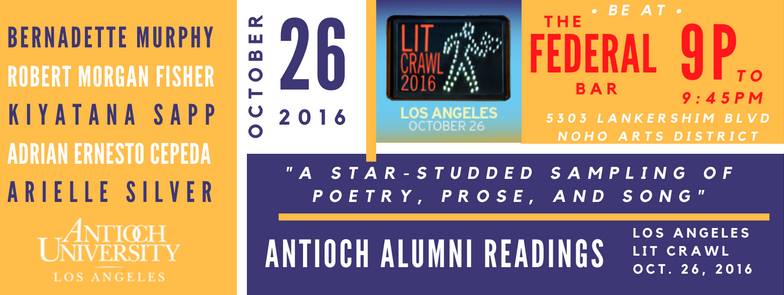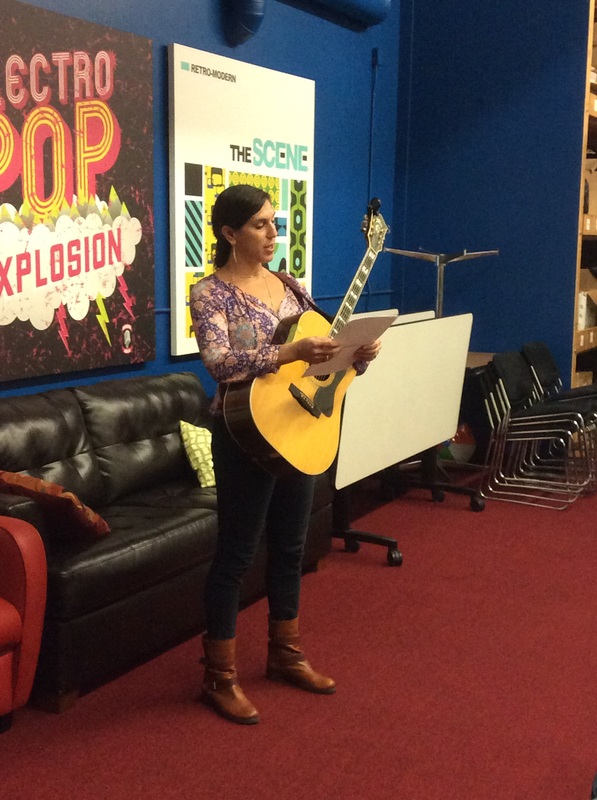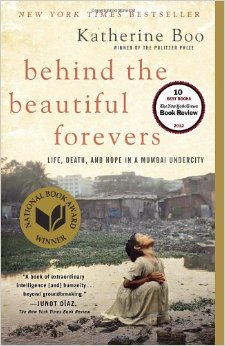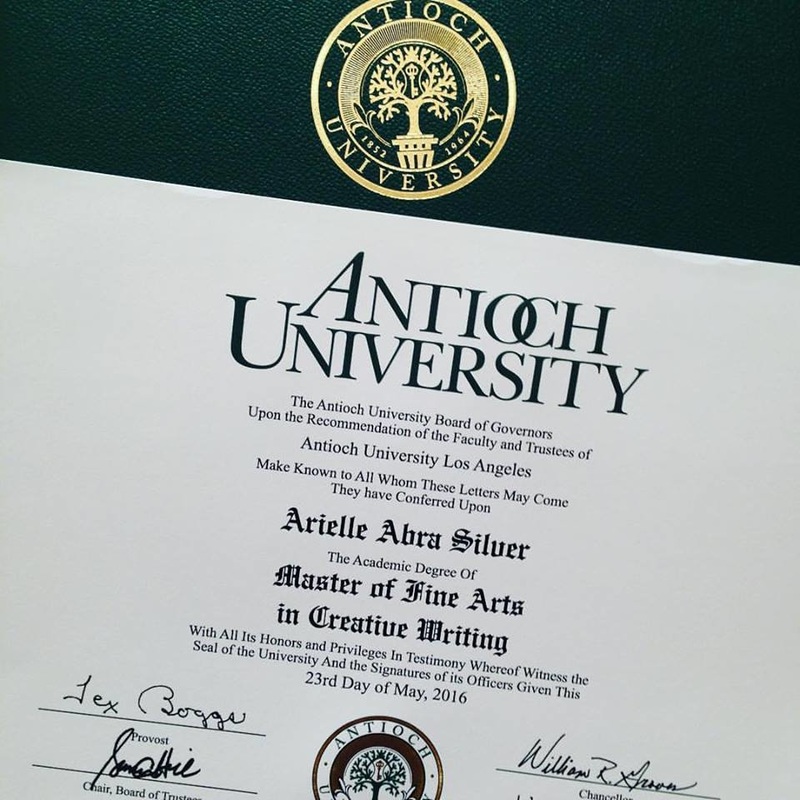|
To calm my nerves and prep my mind for my performance tonight as part of the Los Angeles Lit Crawl, I invited my office colleagues into the pool room for a noontime 10-minute flash concert. It's actually the mail room, but a few years ago the company painted the walls Persian blue, put in new carpet, and installed a pool table and video game console. I'll deliver a song and a short story, I told them, and added that their presence would be a great service to me, as I haven’t performed in front of an audience in quite some time. It's actually been years since I've stood on stage and performed one of my songs. The invitation came from my hope to ease today's tension of what has been the duality throughout my life. On one side, my desire to sing, tell stories, and connect with an audience. On the other, nothing scares me more.
When: Today at Noon for 10 minutes Where: The Pool Room What: A Quick Practice Run of Tonight’s Song & Story Who: Me and You Why: Because, hey, it’s the entertainment business My earliest memories of singing are a collage: bath-time duos with my guitar-strumming dad; "Tomorrow" at the top of my lungs from the balcony at a Broadway show of Annie and, later, from the balcony of my grandparents' highrise; and, in Hebrew at my Jewish summer camp, "I'm Gonna Wash That Man Right Outta My Hair." Sometime between baths and camp, I learned shame and fear of being shamed. I internalized a philosophy that, at its essence, suggested that anything less than perfection was unworthy. Society? Parents? My own nature? Who is to say where I learned it. Stage fright is a bully. But I have songs and stories in my heart, and I am certain that if I don't answer their call, the incessant knocking will drive me mad. The anxiety was never as bad in orchestra and small chamber groups. I played classical and renaissance music from a young age through my mid-twenties, and frequently sat as first-chair in the college and community groups. In orchestra and wind ensembles, inevitably a solo line popped up here or there. I'd fret over those measures for minutes before they came, but I loved the sound of my singular clarinet soaring over the other winds and strings. Sitting in my formal black and white attire, I could be heard and not seen. When the momentary solo faded back into the wash of music, my nervousness calmed. I was just a vessel for the music amid the other players and a clutter of music stands. In my last year of college, I won a prestigious competition hosted annually by my university's music department. As the winner, I would be the featured soloist at the spring orchestra concert in an orchestral piece of my choosing: the Weber Concertino for Clarinet. Even more than the honor of winning, as soloist I had, for the first time, the opportunity to perform alongside an orchestra. Whereas in the past I'd only had piano accompaniment, for this I rehearsed alone and, later, in the concert hall with the full orchestra. In the throes of stage fright, I can never think clearly. I rehearse to perfection beforehand, in the hopes that in the moment I will be able to deliver a large fraction of that excellence. But rehearsal is not fear-proof. On the day of a performance, my stomach churns for hours, my legs feel numb. On stage, I sweat, I shake, I forget how to do the very thing I have practiced to flawlessness. But I fake it in the hopes that one day I will make it without fright. Unsurprisingly, as the days led up to the concerto performance, I was a wreck of jitters. I knew the concerto competition concert would be the most well-attended of the year. My parents and grandparents, none of whom later attended my college graduation, all flew in. A few days before the concert, I confessed my nervousness to my mentor, Sarah Mead, a beautiful viola da gamba player who had introduced me to Early Music my first semester and nurtured me through all four years like no one ever had. Sarah and I had both skipped grades in elementary school, and bonded over the lifelong sense that we'd missed some essential lesson only taught that particular year. She introduced me to the beautiful music books of the renaissance, with their four lines of music facing the four outer edges so that a family could sit around a table after dinner and play music together. Sarah knew I loved a challenge, and whenever our Early Music ensemble called for a new instrument, she gave me the task of learning: recorders, harp, krumhorns, flutes. Later, after I graduated, I couldn't bear to leave Sarah, so I continued to commute to campus for weekly rehearsals, until I finally moved away. The week of the concerto performance, Sarah told me about the first time her son Patrick played piano for an audience. He was around seven, and he was to play a solo piece as part of the university's celebration of composer and music department founder, Irving Fine. Sarah had worried about his nerves, but when she woke Patrick on the morning of the celebration, he sat up in bed with wide eyes and big grin. "Mommy," he said, "today's the day I get to play my song for everyone." That Sunday, while the orchestra played through the first half of the program, I sat in the green room smoothing my dress and repeating Patrick's words. "Today's the day I get to play my song for everyone." I thought over and over, my fingers shaking on my clarinet keys as I ran through arpeggios, my empty stomach clenching. "Today's the day I get to play my song." I heard the applause and walked onto stage. "Today's the day." I nodded to the conductor and he lifted his arms for the string opening. I am tempted to write more, to tell you how I wet the reed, how my first note rang in the hall, how playful the theme and variations felt tripping off my fingers, how the orchestra buoyed me, how the cadenza I'd written for the near-end felt like a braiding of my own music with Weber's. I am tempted, but I can't, because I don't remember any of it. I only remember feeling a profound sense of shame at the end. Nothing terrible had happened -- I didn't forget a line, my clarinet didn't squeak -- but I remember afterwards wanting to hide from the family and friends waiting in the hallway with bouquets in their arms. For years after that concert, I hid my accomplishment -- the competition, the performance -- convinced that I'd not deserved the recognition. Perhaps that year the competition had been slim. Perhaps I, a far cry from the winners of years past and future, was only the best they had that year. It should have been a glorious moment, a capstone to years of practice and study. But all I could think was that I'd had one chance for perfection, and I had not achieved it. Not long after, I packed away my clarinet. Meanwhile, sometime in college I started writing and singing songs. I wanted so badly for someone to listen, so after college I met my fright head on. I wanted to capture Patrick's joy at sharing something that he loved with others. Following the footsteps of my juggler boyfriend, I bought a busking permit at the Cambridge city hall and every weekend plugged my two-input amp into a car battery, laid out my guitar case for tips, and played for passersby in Harvard Square. When the air turned cold in early October, I donned a winter coat and fingerless gloves. When the Head of the Charles tourists left town, I turned to open mics at Club Passim, the Kendall Cafe, and other songwriter venues that have since closed. Over the years, I pulled together a band, I recorded, I toured. Stage fright still gnawed, but I fought it with a combination of coca cola and gin, and the frequency of performing forced my anxiety into a tenuous remission. And then, ten years ago, I stopped performing almost entirely, and stage fright became a thing I know about myself but didn't have to face on a daily basis. The songs no longer wanted singing, so I no longer needed a stage. My guitar joined my clarinet, and though I occasionally I strummed some chords, for the past ten years I've not felt any great urge to perform. Until now. I woke this morning with wide eyes and a smile. I cannot explain this excitement: I haven't felt it in years. My hands are shaking, and my stomach is churning, my legs are numb, and I'm afraid that despite my practice, I won't be perfect. But beyond all fear, tonight is the night I get to play my song, tonight is the night I get to read my story. Me in the pool room:
1 Comment
It occurred to me today that in these past three years of MFA study, I've read a helluva lot. To keep track of it all, I've written short annotations on all the books and many of the essays. A bit dry and with a bent toward writing craft, nonetheless I wonder if these annotations might be useful to anyone. Here I offer up one of these annotations from a favorite book I read in my second semester.
Boo, Katherine. Behind the Beautiful Forevers. New York: Random, 2014. Print. Behind the Beautiful Forevers, National Book Award winner and New York Times Bestseller, is a book-length narrative work of investigative journalism into the lives of the residents of one of Mumbai’s many undercities, Annawadi, and the corruption, pollution, and culture in which they live. Themes of the book include issues specific to India in the age of globalization - class inequality, the caste system, corruption in the Mumbai judicial system and in the local and international social service organizations meant to serve, dynamics between Hindi and Muslim residents, child labor, health and sanitary conditions of the slums – and universal questions of morals, values, basic human needs, hope, despair, and ambition. Katherine Boo’s writing is intelligent, thought-provoking, illuminating. This book came from her immersion in Annawadi over the course of four years, and relies on direct observation, more than three thousand official public records, and interviews. While this story focuses on Annawadi, Boo underwent her study in the hopes of answering questions about the structure of opportunity in Mumbai, the government’s social and economic policy, and by what means a child might grow out of the poverty cycle in which s/he was born. Boo chose Annawadi because of its sense of possibility, due to its placement next to the airport amid surrounding wealth and corporate encroachment, and because its small scale allows door-to-door household surveys, which helped her differentiate between isolated problems and widely shared ones. What makes this a phenomenal book is Boo’s exemplary storytelling. She opens the narrative in a moment of crisis for the central family, the Husains. The crisis serves as an immediate glimpse for the reader into the tight quarters, filth, and rampant multi-leveled corruption in which Annawadi’s residents reside. Couched within the narrative arc of the crisis - what led to it, how it plays out, the ultimate resolution along with its wide-reaching yet, for Annawadi, unremarkable residual effects – the reader gets an intimate view of individuals who live in the slum, their external and internal struggles, and their hopes and desires. The innovative way they strive, with whatever scraps of resources they have at their disposal, to rise beyond the walls of the undercity and into the middle class of Mumbai, brings a universal theme of overcoming adversity to an audience of readers who, ultimately, relate to the people living in this tragic poverty. I ran off to Big Sur last week, and when I got home, this was waiting on the doorstep. I want to write a whole story about it - it's an MFA in Creative Writing, after all, and after 3 years' journey through my primary study in creative nonfiction and secondary in fiction and literary translation, I should be able to string together some delightful narrative. But, truth is, while I've earned the degree, I'm still in the story. This semester I'm concurrently enrolled in a Post-MFA Certificate in Creative Writing Pedagogy and a Professional Development Semester in online CW course development. And as long as this is CNF, let's be honest: I won't be done with my PMFA Certificate till June. Also, I'm still serving as editor-in-chief of Lunch Ticket (and completely honored to do so), and still deeply entrenched in grad school.
But I want to sit still long enough to look at this degree in my hands, because I've worked my booty off these past almost 3 years. I've grown tremendously as a writer, editor, and teacher. I've written and rewritten a book-length manuscript four times, started work on a historical novel, studied French and translated a book and a half and some poetry into English, really studied the art and considerations of translation, have researched and written (and published) about the wicked stepmother trope, learned a great deal about the literary world and publishing an online journal, and have published a bit of my own work. I'm still fired up, and all of this is due to my incredible mentors and the support of the whole AULA MFA community. Never ending gratitude for the guidance and influence of these writers and teachers: Brad Kessler (Birds in Fall, Goat Song) Hope Edelman (The Possibility of Everything, Motherless Daughters) Dan Bellm (Practice, Description of a Flash of Cobalt Blue) Peter Selgin (The Inventors, Confessions of a Left-Handed Man) Peter Nichols (The Rocks, A Voyage for Madmen) Bernadette Murphy (who gets all the credit for getting me to apply to this program) (Harley and Me, Zen and the Art of Knitting) Sharman Russell (Diary of a Citizen Scientist, Teresa of the New World) Christine Hale (A Piece of Sky, A Grain of Sand) Jenny Factor (Unraveling at the Name) Audrey Mandelbaum and MFA program director, Steve Heller (The Automotive History of Lucky Kellerman), who for some reason continues to trust me with the keys to Lunch Ticket, And, lastly but most importantly, my dear husband Darby Orr, who served as my first editor, married me in the middle of this whole mess, and who has encouraged me every word along the way. Ten years ago I stepped off the stage, packed up my guitar, and sat beside the Chesapeake Bay with a skein of yarn and circular needles. I had no idea how to knit, and I had no idea how to live with or without music as the central focus of my life. For those 6 weeks, KT Tunstall and the click of my needles were my soundtrack. I took walks on the empty beach and dragged giant driftwood logs back to the house. I tried writing a song or two, and drenched my guitar with tears. I knitted eleven purses. I listened to KT, a rockin' folker / folksinging rocker, a woman exactly my age who had less fear and more energy. I found some comfort that she was "making it" just as I was stepping away, almost like we were alternate versions of the life i once wanted. I never went back to performing, not in a full hearted way, but she's still killing it, and last night at the Fonda she rocked my world.
|
Archives
May 2019
Categories
All
|




